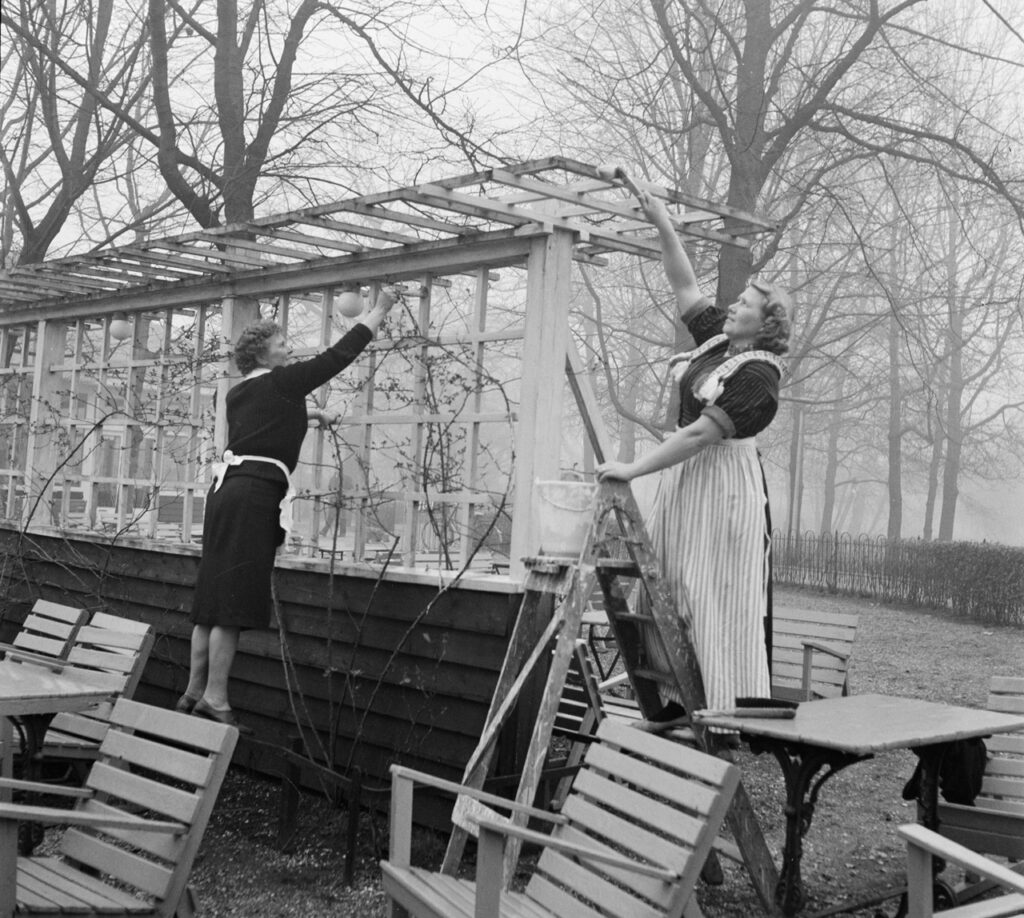
The judiciary is due for a spring cleaning.
Een wanhopige Folkert Jensma geeft het advies aan de rechterlijke macht (NRC 250223) een soort voorjaarsschoonmaak in het niet meer te behappen achterstallig werk te houden. Hij constateert, dat de rechtspraak anders een marginale rol in de samenleving gaat spelen. En om dat te voorkomen roept hij daarbij de rechtspraak op om zich meer op de voorgrond te begeven, maar dan buiten de rechtszaal. Een revolutie in het denken bij de rechtspraak is daarvoor nodig. Om dat infarct in de rechtspraak op te lossen geeft hij wat suggesties mee, die schuren aan tegen het brevet van onvermogen. Maar hij blijft steken in speculaties en open vragen (wat hij ook zelf beaamt). Die zullen de congestie en het tanende vertrouwen in de rechtspraak niet wegnemen. In het jaarplan 2023 van de Rechtspraak wordt ook gewezen op dat tekort aan personeel en worden vernieuwende impulsen opgesomd die het schip vlot moeten trekken, waarvan een deel overigens ook de suggesties van Folkert Jensma raken. De zgn. inloopkamer, een soort vliegende kiep van rechters, lijkt een succes te zijn. Ook wordt gewerkt aan de digitale zichtbaarheid van de rechtspraak in de publieke ruimte.
https://www.rechtspraak.nl/SiteCollectionDocuments/jaarplan-van-de-Rechtspraak-2023.pdf
A desperate Folkert Jensma advises the judiciary (NRC 250223) to do some sort of spring cleaning in the unmanageable overdue work. He notes that otherwise the judiciary will play a marginal role in society. And to prevent that, he calls on the judiciary to move more to the fore, but outside the courtroom. A revolution in thinking in the judiciary is needed for this. To solve that infarction in the judiciary, he gives some suggestions, which rub against the certificate of inability. But he gets stuck in speculations and open questions (which he himself agrees). These will not remove the congestion and the waning confidence in the judiciary. The 2023 annual plan of the Judiciary also points to this shortage of personnel and lists innovative impulses that should get things going smoothly, some of which also touch on Folkert Jensma’s suggestions. The so-called walk-in room, a kind of flying tipper of judges, seems to be a success. Work is also being done on the digital visibility of the judiciary in the public space.
Maar al die goede voornemens lopen dood op het schrijnend tekort aan rechters (800). Vandaar de dreigende staking van de rechters. Het is provocerend te zeggen, maar als de maatschappij geen heil ziet de trias politica op het schild te dragen, dan is het maar zo. Gezien de recente schandalen bij de overheid lijken de instituties parlement, regering en rechtspraak te kunnen rekenen op groot wantrouwen van de burger. Wellicht moet het eerst scherp worden gespeeld om loutering te brengen. Immers, een dergelijk groot wantrouwen lijkt sinds de 80jarige oorlog niet meer te zijn voorgekomen. Maar mocht je dan toch een poging willen wagen, dan zou op de eerste plaats vernieuwing centraal door de ambtelijke organisatie moeten kunnen worden opgelegd, zoals het alleen doen van een mondelinge uitspraak. Een ambtelijke organisatie, die aan geschilbeslechting doet. De individuele rechter spreekt recht volgens de methode van deze organisatie, maar doet dat nog steeds in alle onafhankelijkheid. Op de tweede plaats zou de rechtszekerheid in het belastingrecht tijdelijk afgetopt moeten worden. De met ingang van 1/1/2005 ingevoerde 2e feitelijke instantie in belastingzaken zou tijdelijk opgeschort moeten worden. Niet de rechtbank en daarna het gerechtshof als appelrechter, maar alleen het gerechtshof oordeelt (weer) over de feiten. Dat speelt rechters vrij. Dat is beter dan duizenden procedures op de plank niet meer te behandelen. Beter één uitspraak te doen dan géén uitspraak. Dat sterkt het vertrouwen van de burger in de overheid.
But all those good intentions come to a dead end due to the dire shortage of judges (800). Hence the impending strike of the judges. It is provocative to say, but if society sees no point in wearing the trias politica on its shield, then so be it. In view of the recent government scandals, the institutions of parliament, government and the judiciary seem to be able to count on the public’s great distrust. Perhaps it must first be played sharply to bring refinement. After all, such great mistrust does not seem to have occurred since the 80-year war. But if you still want to give it a try, it should first of all be possible to impose innovation centrally by the civil service, such as only making an oral decision. An official organization that deals with dispute resolution. The individual judge administers justice according to the method of this organization, but still does so in complete independence. Secondly, legal certainty in tax law should be temporarily capped. The 2nd de facto instance in tax matters introduced as of 1/1/2005 should be temporarily suspended. Not the District Court and then the Court of Appeal as an appeal court, but only the Court of Appeal (again) judges on the facts. That frees up judges. That’s better than not treating thousands of procedures on the shelf anymore. Better to make one statement than none at all. This strengthens public confidence in the government.
Ricky Turpijn



